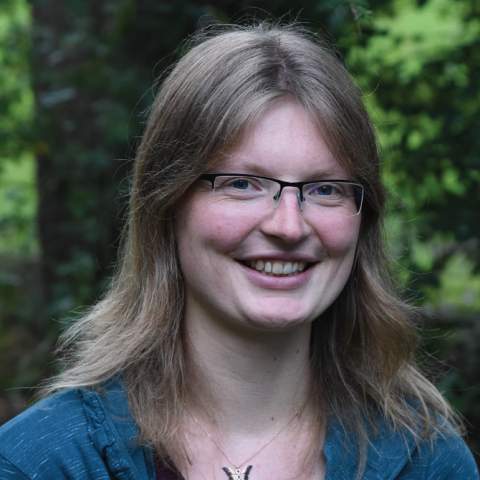Calving and adaptation to the new lactation are critical transitions for dairy cows. During early lactation, cows have an increased risk of diseases and disorders. Some cows may be more prone to get sick than others. Akke Kok is a researcher at the Wageningen University and Research and postdoc at DeSIRE. In her research she tries to find a way to quantify the resilience of a cow before the onset of disease.
The researcher is looking for ways to determine which cows have a high, and which cows have a low resilience, in the absence of disease. In a first attempt, she was researching if fluctuations in milk production could be an indication for the susceptibility of a cow for the udder disease mastitis. “Fluctuations in milk yield were increased in cows with mastitis, but only after the onset of the disease. As such, milk fluctuations in the absence of the disease were not informative of resilience. Currently I do research to find out if the lying behaviour and other aspects of the milk production of cows can be used to quantify resilience. Eight dairy farm in the Netherlands provided me with lying and activity data. I am currently analyzing this data in combination with health records and milk production data.”
Known and unknown disturbances
Deviations in lying patterns of dairy cows can provide insight in the degree of disturbances on the farm, as well as the individual response to these disturbances. A number of these disturbances are known. A heat wave in summer, for example, or a calving event. When there is a sudden change in lying patterns and milk production, the cause can also be an unknown disturbance. “If I find an unexplained fluctuation for the whole herd, I can ask the farmers if they are aware of the cause” says Akke Kok. “By doing this, we may identify disturbances that were unknown to us, prior to this research. This understanding can help to strategically reduce the disturbances on a farm. This will increase animal wellbeing.”
About Akke Kok
Akke Kok is a post-doc within the DeSIRE Programme of 4TU Centre for Resilience Engineering. She works on measuring and modelling resilience of individual animals. To maintain her own resilience during the pandemic she likes to run.
- In 2011 she obtained a BSc degree in Biology from Utrecht University.
- In 2013 she obtained a MSc degree in Environmental Biology from Utrecht University.
- In 2018 she completed her PhD (cum laude) at Wageningen University and - Research at the Animal Production Systems group of Wageningen.
- After obtaining her PhD she has been working as postdoctoral fellow with the Animal Production Systems group and Adaptation Physiology group of Wageningen University and Research.
- In 2020 she became part of the Dreamteam Integrated Sensor Platforms which is part of the Next Level Animal Sciences innovations program of the Animal Sciences Group.
